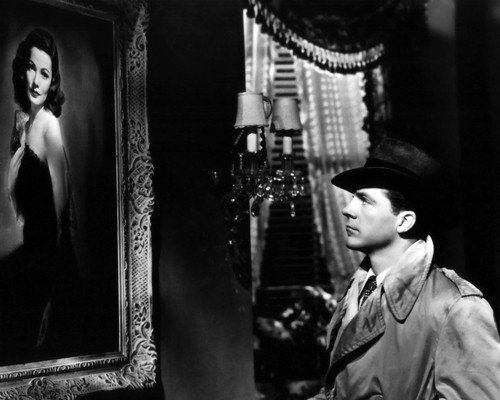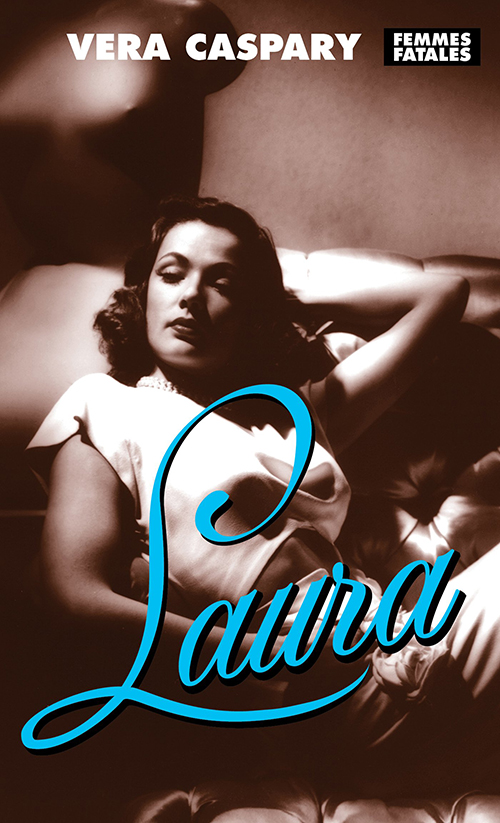
The story is told from the viewpoint of several main characters, including Detective Mark MacPherson, esthete and friend of the deceased Waldo Lydecker, and Laura's unfaithful fiancé Shelby Carpenter. It is up to the reader to piece together the stories about this fascinating woman and race along with Mark to solve the crime. The murder is actually a quite brutal one—ostensibly Laura went to answer her doorbell and was killed with a shotgun blast to the face. The method of the crime is in stark contrast to the glamorous New York City apartments and surroundings of Laura's life as an advertising executive, an impressive job for a young woman in 1942. We learn quite a bit about Mark, Waldo, and Shelby, too. Laura, a romantic thriller, is a great book with great characters, and I loved it - with one major caveat. Spoiler alert—read no further if you haven't seen the movie . . .

Laura, by Vera Caspary
SPOILER:
It is discovered more than halfway through the book that the body of the murdered woman in Laura's apartment was not Laura, so the reader finally gets to meet her and see if other's descriptions of her square with the genuine article. And at first, she does, beautifully. She is honest, earnest and even shows some interest in Mark, so things seem to be going quite smoothly to a romantic finish—as long as Laura isn't the murderer. But the real problem for me is that Caspary has Laura casually drop the "N" word in conversation and it completely soured my interest in her character. I understand that such casual racism was probably quite common in the 1940s, but . . . yuk.
I did a little research on the author, who led a quite interesting life, but found no clues as to her thoughts about race. She dabbled in Socialism and Communism, even going so far as visiting Russia to see if the country lived up to her expectations. She lived openly with her married British lover for years before finally marrying in 1948. She led an unusual life, like her protagonist, for a woman of the time.
Apparently the publisher of this reprint series, actually subtitled Femmes Fatales, and published by The Feminist Press at CUNY, didn't see any reason to add an editor's note about Laura's outburst. It's a single, strange event that happens and never occurs again in the text, by her or any other character.
Sigh. It's best to be honest about our past to go forward into the future. This is not the only instance of racist language that I have encountered in my recent book-to-film adventures. So far the 40s and 50s American popular literature is proving quite problematic.
This post also appears on Cannonball Read 11

0 comments:
Post a Comment